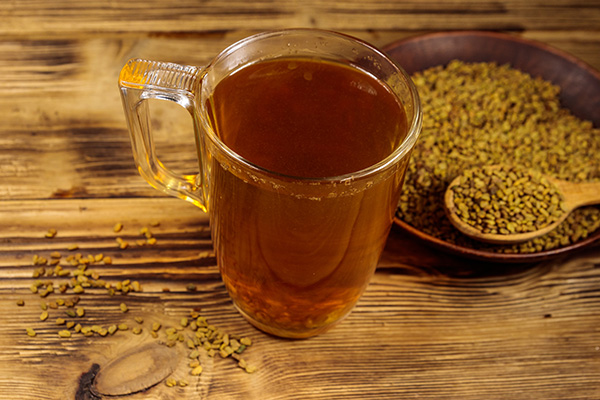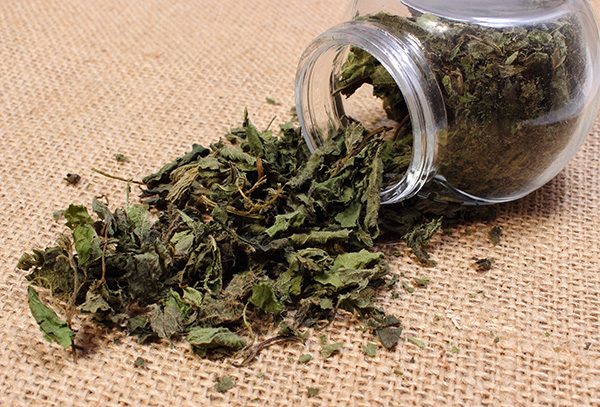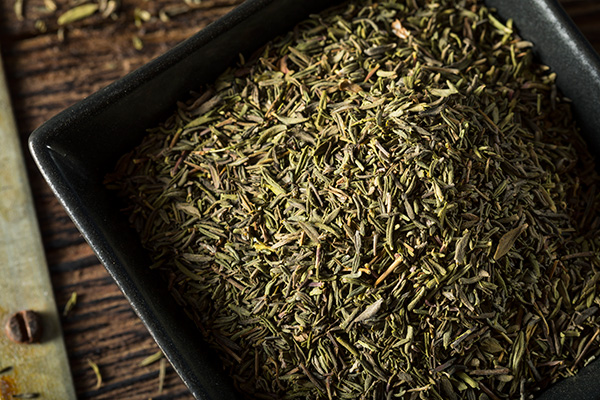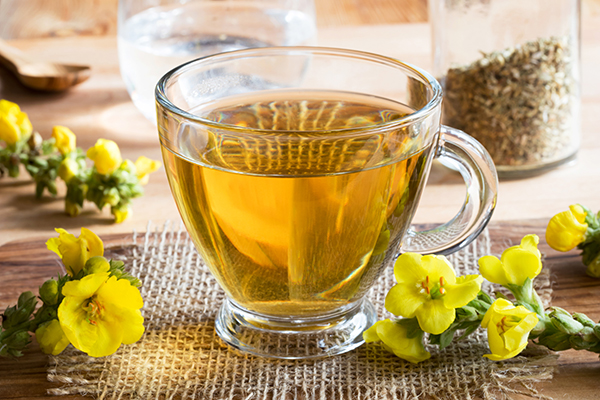Mother’s Milk Tea: Benefits and Side Effects
Breastfeeding can be a challenging experience for many new mothers, and one popular remedy that has been recommended for centuries is Mother’s Milk Tea.
This article will explore the ingredients, benefits, and potential side effects of this herbal tea, along with other practical advice and information to help you make an informed decision.

What Is Mother’s Milk Tea?
Mother’s Milk Tea is a traditional herbal blend that supports lactation and increases breast milk production. It is typically made from a combination of herbs and spices known for their galactagogue properties, which means they help promote milk flow in breastfeeding mothers.
What Are the Ingredients in Mother’s Milk Tea?
The ingredients in Mother’s Milk Tea can vary depending on the brand or recipe. Some common ingredients include:
- Fenugreek
- Fennel seeds
- Anise seeds
- Blessed thistle
- Nettle
- Alfalfa
- Raspberry leaf
- Coriander
- Lemon verbena
What Are the Benefits of Drinking Mother’s Milk Tea?
Drinking Mother’s Milk Tea can provide several benefits, including:
- Increased milk production: The primary goal of Mother’s Milk Tea is to help boost breast milk supply, which is essential for the baby’s growth and development.
- Improved digestion: Ingredients like fennel and anise are known to aid digestion and may help reduce colic or gas in both mother and baby.
- Rich in vitamins and minerals: The herbal ingredients in the tea contain essential nutrients that can support overall health and wellness.
- Relaxation: The soothing qualities of the tea can help promote relaxation, which may be beneficial for stressed or anxious mothers.
- Hormone balance: Some ingredients in the tea, such as raspberry leaf, can help regulate hormone levels, which could have positive effects on mood and energy levels.
What Are the Side Effects?
While Mother’s Milk Tea is generally considered safe, some side effects may occur:
- Allergic reactions: Some individuals may be allergic to one or more of the ingredients in the tea.
- Gastrointestinal issues: Ingredients like fenugreek can cause gas, bloating, and diarrhea in some individuals.
- Lower blood sugar levels: Fenugreek has been known to lower blood sugar levels, which can be a concern for those with diabetes or hypoglycemia.
- Interactions with medications: Some of the herbs in Mother’s Milk Tea may interact with medications, so it’s important to consult your healthcare provider before consuming the tea.
- Overstimulation of lactation: Drinking too much of the tea could potentially lead to an overabundance of milk, causing discomfort and engorgement for the mother.
Does Mother’s Milk Tea Actually Work?
While many mothers have reported success with Mother’s Milk Tea, it’s important to note that individual experiences can vary. Some women may find the tea effective, while others may not see any noticeable increase in milk production.
If Mother’s Milk Tea doesn’t work for you, there’s an extensive selection of teas beneficial for new mothers.
When to Start Drinking Mother’s Milk Tea?
It’s generally recommended to start drinking Mother’s Milk Tea after giving birth, as the tea’s primary purpose is to promote lactation. However, discussing your plans with your healthcare provider or lactation consultant is essential, as they can provide personalized advice based on your unique situation.
When Should You Drink Mother’s Milk Tea?
You can drink Mother’s Milk Tea throughout the day, but consuming it between nursing sessions is usually recommended.
How Much Mother’s Milk Tea Should I Drink?
The recommended amount of Mother’s Milk Tea can vary depending on the brand and individual needs. Generally, it is advised to start with 1-3 cups per day and monitor your body’s response. If you notice a positive change in milk production without any adverse side effects, you may continue with the same amount or adjust as needed.
Is It Safe to Drink Mother’s Milk Tea Everyday?
For most people, it is safe to drink Mother’s Milk Tea daily. However, if you experience any side effects or have concerns about the tea’s ingredients, it’s essential to consult your healthcare provider or a lactation consultant before continuing daily consumption.
How Long Does It Take for Mother’s Milk Tea to Start Working?
The time it takes for Mother’s Milk Tea to start working can vary from person to person. Some mothers may notice an increase in milk production within a few days, while others may take a week or more to see noticeable results. It’s important to be patient and give the tea time to work.
Is Mother’s Milk Tea Vegan?
Most commercial Mother’s Milk Tea brands are vegan, as they contain only plant-based ingredients. Moreover, all teas are inherently vegan.
However, checking the label for non-vegan additives or processing methods is always a good idea.
How to Make It Taste Better
If you find the taste of Mother’s Milk Tea unappealing, here are some tips to make it more enjoyable:
- Add a sweetener: Honey, agave syrup, or stevia can help enhance the flavor of the tea.
- Mix with other teas: Blend Mother’s Milk Tea with other herbal teas, like chamomile or mint, for a more complex flavor profile.
- Add lemon or orange: A splash of citrus can brighten the taste and add a refreshing note.
- Use spices: Cinnamon, cloves, or cardamom can add warmth and depth to the tea’s flavor.
- Experiment with brewing times: Adjusting the steeping time can affect the strength and taste of the tea.
Final Thoughts
Mother’s Milk Tea is a popular herbal remedy that can help support lactation and improve milk production for breastfeeding mothers. While individual results may vary, it’s worth trying if you’re looking for a natural way to increase your breast milk supply. Before starting any new herbal remedies, remember to consult your healthcare provider or lactation consultant.
FAQ
What Can I Eat to Increase Breast Milk Production?
Foods rich in protein, whole grains, fruits, vegetables, and healthy fats can help support milk production. Some specific lactation-boosting foods include oats, almonds, spinach, and sweet potatoes.
What Can I Drink to Increase Breast Milk?
In addition to Mother’s Milk Tea, staying well-hydrated by drinking water, coconut water, and other non-caffeinated beverages can help support milk production.
Can You Blend Your Own Milk Boosting Tea at Home?
Yes, you can create your own blend of milk-boosting tea at home by combining herbs like fenugreek, fennel, anise, and raspberry leaf.
Can You Drink Mother’s Milk Tea at Night?
Drinking Mother’s Milk Tea at night is generally safe. The tea doesn’t contain caffeine, but it’s best to monitor how it affects your sleep anyway.
Can You Drink Mother’s Milk Tea Cold?
Yes, you can enjoy Mother’s Milk Tea cold. Simply prepare the tea as usual and refrigerate it until chilled.
Does Mother Milk Have Taste?
Yes, Mother’s Milk Tea has a distinct taste that varies depending on the specific blend of herbs used. Some people find it earthy and slightly sweet, while others may describe it as bitter or grassy. The taste can be altered by adding sweeteners, spices, or other herbal teas.
Is Mother’s Milk Tea FDA Approved?
The FDA does not regulate or approve dietary supplements, including herbal teas like Mother’s Milk Tea. However, many brands adhere to good manufacturing practices to ensure their products are safe and high-quality.
Is Mother’s Milk Tea Caffeine Free?
Most Mother’s Milk Tea blends are caffeine-free, as they are made from herbal ingredients that do not naturally contain caffeine. However, it’s always a good idea to check the label to confirm that the specific blend you’re using is free from caffeine.






